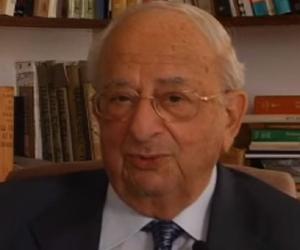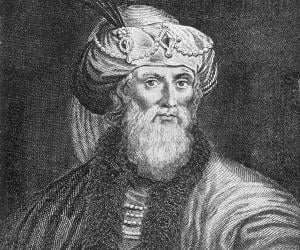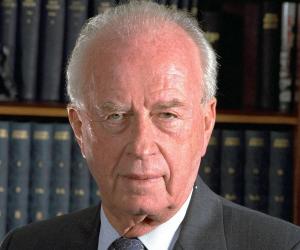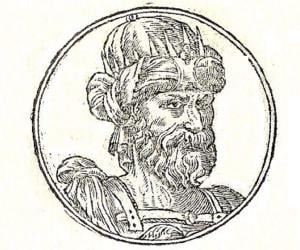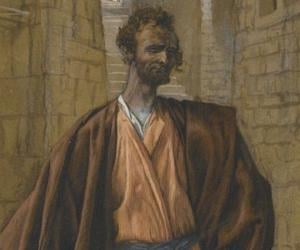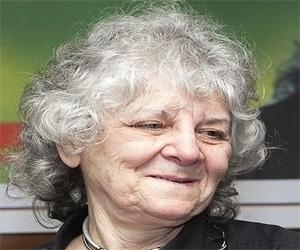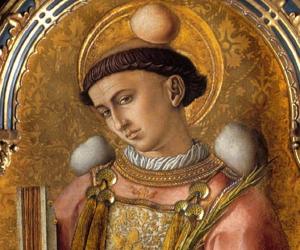Debuting at the age of thirteen, Israeli American actress Natalie Portman is today one of the most successful actresses in Hollywood. Her movie list is impressive with successful projects like Black Swan, Jackie, Star Wars, Closer and Thor. While pursuing her passion for acting, the Academy award winning actress also ensured to complete her studies and graduated from Harvard University.
Josephus was a Romano-Jewish historian. He played a major role during the First Jewish–Roman War, where he fought against the Romans as head of Jewish forces. However, he surrendered to Roman forces in 67 CE. As a historian, Josephus' works provide the first-known source for stories considered Biblical history. These stories include the narration of the Siege of Masada.
Israeli politician, statesman, and general, Yitzhak Rabin, served two stints as the prime minister of Israel. As a young man, he joined the military and served for nearly three decades. He had an extensive political career as well and played a key role in embracing the Israeli-Palestinian peace process. He was assassinated in November 1995.
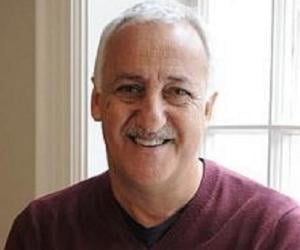
Brian George is an Israeli-British actor who gained much fame for playing the role of Pakistani restaurateur Babu Bhatt in the TV series Seinfeld. He is of mixed descent and often plays characters from India and Pakistan. As a young man, he joined the improvisational comedy enterprise, The Second City, and soon made his foray into TV and cinema as well.
Israeli president Reuven Rivlin, a qualified lawyer, has been associated with organizations such as the Betar Jerusalem Sports Association. A supporter of the one-state solution to end the Israel–Palestine issue, he has previously made headlines for cancelling an Amir Benayoun show after the singer sang an anti-Arab track.


Nehemiah Persoff is a retired actor and painter. In an extensive career spanning over half a century, he appeared in more than 200 films, TV shows, and stage productions. As a young man, he served in the US Army. He then began his acting career in the New York theater and started acting in films and TV shows as well.

Raymond John Leppan, better known by his ring name, Adam Rose, is a retired South African wrestler. He once described himself as the “life of the party” and has also represented NXT and WWE. He was also part of an E:60 documentary titled Behind the Curtain.
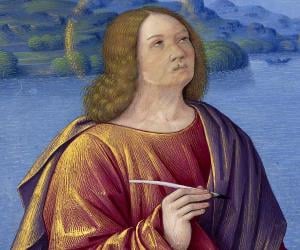
John the Evangelist, or St. John the Apostle, was one of Jesus’s Twelve Apostles. The son of a fisherman, he was one of the first disciples of Jesus. He is believed to have penned Letters of John and the Fourth Gospel. He and his brother, James, were called the sons of thunder.
Mili Avital is an Israeli actress, writer, and director who has been active in the entertainment industry for three decades. She studied acting at the Circle in the Square Theatre School and soon made her film debut. She began her career in Israel and now appears in international projects as well. She is the recipient of one Israeli Academy Award.


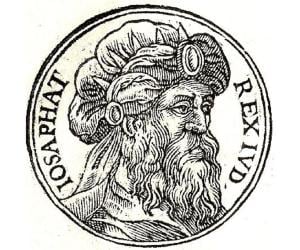
Jehoshaphat reigned as the fourth king of Judah from 870 to 849 BCE. Jehoshaphat is credited with instituting several reforms, including religious reforms, in the Kingdom of Judah. He is widely regarded as a successful king whose reign was marked by a great measure of prosperity and peace in the kingdom.

Jonah Lotan is an Israeli actor known for playing important roles in popular TV series like 24, Foyle's War, and Hostages. Lotan is also known for his contribution to the theater; he played the role of Joel Singer in J. T. Rogers' Tony award-winning play Oslo at the Royal National Theatre's Lyttelton Stage in September 2017.
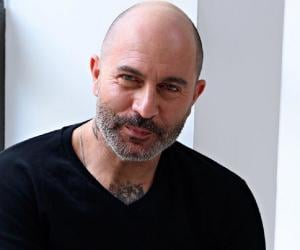
Lior Raz is an Israeli actor and screenwriter best known for playing the role of Doron Kavilio in the political thriller TV series Fauda. As a young man, he served in the Israel Defense Forces as a commando. He later pursued an acting career on TV, eventually branching out into films as well. He often appears in thrillers.
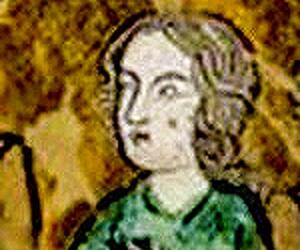
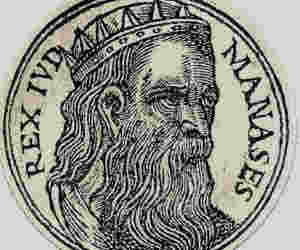
Manasseh of Judah was the King of Judah who reigned from 697 to 643 BC. From 697 to 687 BC, he ruled as a co-regent and his total reign of 55 years is the longest in the history of Judah. He is usually depicted as a wicked king as he allowed the revival of several pagan rituals, including child sacrifice.

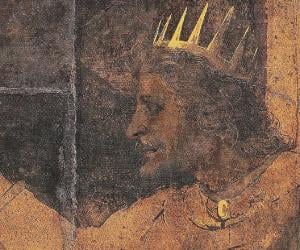
Rehoboam reigned as the King of Judah from 931 to 913 BCE. Since Judah and Israel remained in a state of war during his 17-year reign, Rehoboam built many strongholds and elaborate defenses, including fortified cities, thus playing a major role in shaping the Kingdom of Judah.

The Book of Ezekiel, or The Prophecy of Ezechiel, of the Hebrew Bible talks about Ezekiel, the prophet. He is said to have lived near the Chebar River during the Babylonian Captivity. In about 592 BC, Ezekiel received a religious call, having viewed the “throne-chariot” of God in a vision.

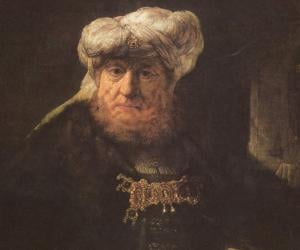
Uzziah reigned as the tenth king of the Kingdom of Judah. According to the Biblical narrative, Uzziah reigned for about 52 years and was one of the most prosperous rulers of the Kingdom of Judah. It is believed that he suffered from leprosy during his reign for disobeying God.
Judas Iscariot was one of the Twelve Apostles of Jesus. He is remembered for betraying Jesus Christ by kissing him and thereby revealing his identity as a rabbi in front of the authorities who had come to arrest the rabbi. Judas remains a controversial biblical figure and his name is used synonymously with treason or betrayal.
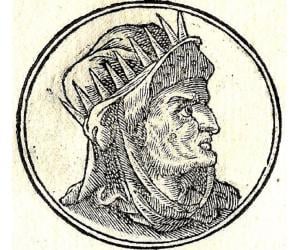
Jehoiakim reigned as the King of Judah from 609 to 598 BC. He ruled the kingdom as a vassal of the Egyptians. After the Egyptians' defeat at the battle of Carchemish, Jehoiakim changed allegiances and supported the Babylonians in order to avoid the destruction of Jerusalem.

Gideon Raff is an Israeli film director, writer, and screenwriter. He is credited with creating the popular Israeli television drama series Prisoners of War. He then went on to co-develop the American version of the thriller TV series Homeland. Over the course of his illustrious career, Gideon Raff has won several prestigious awards like Primetime Emmy Award and Edgar Award.
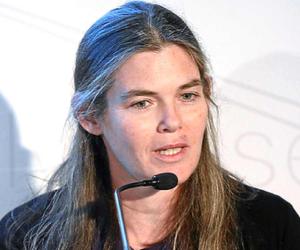
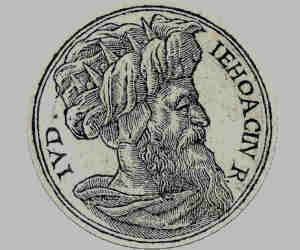
Jeconiah reigned as the 19th King of Judah from 598 to 597 BCE. Jeconiah's reign of three months and ten days came to an end when Nebuchadnezzar II's army captured Jerusalem. Subsequently, Jeconiah and 3000 Jews were exiled to Babylon. This is seen as a significant event in the history of Israel as well as Babylon.

Isaac Luria was a rabbi and Jewish mystic in the community of Safed in Ottoman Syria, now Israel. He is considered the father of contemporary Kabbalah, and his teachings are referred to as Lurianic Kabbalah. He wrote only a few poems and was known to deliver his lectures spontaneously. The Ari Ashkenazi Synagogue was built in his memory.

Originally called Amos Klausner, Oz Amos was an Israeli short story writer, novelist, essayist, and educator, known for his advocacy of two-state solution to the Israeli–Palestinian conflict. Professor Hebrew literature at Ben-Gurion University, he wrote forty books, many of which have been translated into forty-five languages, earning him numerous international awards and honors, including Legion of Honour of France.

Iddo Netanyahu is an Israeli physician and author. He is the younger brother of former Prime Minister of Israel, Benjamin Netanyahu, and martyred IDF officer Yonatan Netanyahu. Iddo Netanyahu received an M.D. from the Hebrew University of Jerusalem. He practices as a radiologist and also has a thriving literary career. He is currently concentrating on playwriting.


Baldwin III of Jerusalem was the King of Jerusalem from 1143 until his death in 1163, at the age of 33. The seizure of the Egyptian fortress of Ascalon was one of the highlights of his reign. He is credited with improving the relations between Byzantium and Jerusalem; during his reign, the Byzantine Empire became a close ally of Jerusalem.

Ada Yonath is an Israeli crystallographer. She is best known for her work on the structure of the ribosome, for which she received the 2009 Nobel Prize in Chemistry along with Venkatraman Ramakrishnan and Thomas A. Steitz. The first Israeli woman to win the Nobel Prize, she occupies the Martin S. and Helen Kimmel Professorial Chair at the Weizmann Institute.

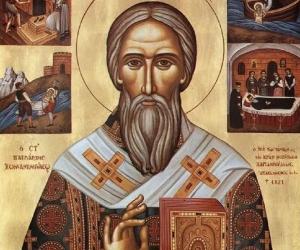
Cyril of Jerusalem was a theologian of the early Church who succeeded Maximus as Bishop of Jerusalem towards the end of 350 AD. He is credited with documenting the instruction of catechumens and the order of the Liturgy in his day. He was declared a Doctor of the Church by Pope Leo XIII in 1883.
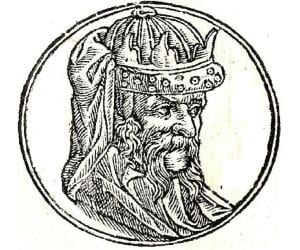
Jehoram of Judah reigned as the King of Judah from 849 BCE until his death in 842 BCE. He is generally depicted as a cruel man who killed his six brothers in order to secure his position as the King of Judah. He was succeeded by his son Ahaziah.

Amalric of Jerusalem was the King of Jerusalem who reigned from 1163 until his death in 1174. He is credited with strengthening the relationship between the Byzantine Empire and Jerusalem. During his reign, Jerusalem and the Byzantine Empire joined forces and launched an attack on Egypt, which was unsuccessful. He is also remembered for fathering three future rulers of Jerusalem.
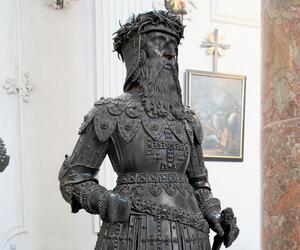
William of Tyre was a medieval prelate and chronicler who lived during the 12th century. He spent two decades studying the liberal arts and canon law in the universities of Europe. He was made the archbishop of Tyre and was also appointed a tutor to the king's son. He is considered one of the best authors of the Middle Ages.

Israel Prize-winning author David Grossman is best known for his iconic books on Israel, such as See Under: Love and The Book of Internal Grammar. Born into a working-class family, he also developed his left-leaning traits early in life and later stepped into political activism, too.
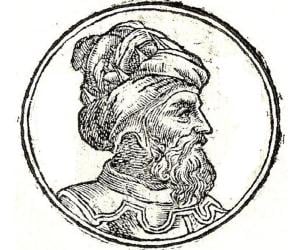
Amaziah of Judah was the King of Judah who reigned for 29 years; 24 years of his reign had his son Uzziah as co-regent. Amaziah of Judah is usually depicted as a righteous king who adhered strictly to the Law of Moses. His legacy revolves around his righteousness and his decision not to kill the children of his father's murderers.

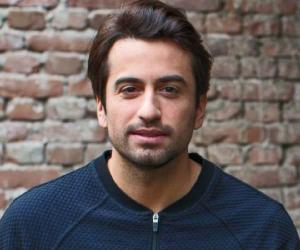
Israeli-born singer Dotan moved to the Netherlands as a toddler. He began his music career performing at private functions and soared to fame with his debut album, 7 Layers. Though he hardly appeared in his own music videos, he was later criticized for hiring troll accounts to boost his social-media reputation.
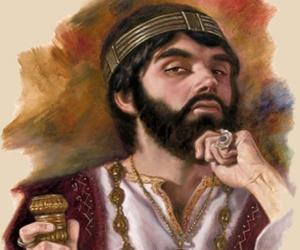
Abijam was the second King of Judah who reigned from 913 BCE until his death in 911 BCE. One of the most popular kings of the House of David, Abijam aimed at winning back Israel to the Davidic kingdom. As a result, he fought in the Battle of Mount Zemaraim and emerged victorious. Subsequently, he captured Bethel, Ephron, and Jeshanah.

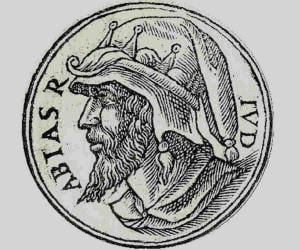
Abijah of Judah was the King of Judah who reigned from 913 BCE until his death in 911 BCE. One of the most popular kings of the House of David, Abijah aimed at winning back Israel to the Davidic kingdom. As a result, he fought in the Battle of Mount Zemaraim and won. Subsequently, he captured Bethel, Ephron, and Jeshanah.
